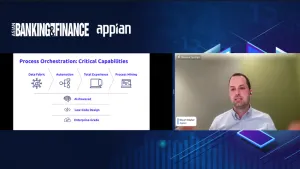What Singapore banks need to know to implement MAS Notice 643
By Ashley O'ReillyThe Monetary Authority of Singapore issued Notice 643 “Transactions with Related Parties” on 2 April 2013 which sets out the MAS requirements related to transactions between banks in Singapore and their Related Parties.
All Banks in Singapore are required to ensure that all Related Party Transactions are conducted free of conflicts of interest and based on terms and conditions not more favourable than similar transactions with non-related parties under similar circumstances.
The MAS 643 requirements are designed to ensure that banks exercise appropriate oversight and control over their RPTs so as to mitigate the risk of abuses arising from conflicts of interest, as well as for alignment with international best practices including the Core Principles for Effective Banking Supervision issued by the Basel Committee on Banking Supervision.
Prior to the effective date of 1 July 2014, the industry, including us, provided feedback to MAS regarding the implementation of the Notice. In December 2013 MAS issued a Consultation Paper intended to address the industry feedback that MAS received.
To date there has been no suggestion by MAS that the effective date of the Notice will be pushed back from 1 July 2014.
No bank in Singapore is exempt from MAS 643 and as most banks have an extensive international network and a vast regional footprint, RPT volumes are significant. Furthermore, most banks currently have a segmented and incomplete RPT inventory.
There are five key activities that banks must complete before 1 July 2014 in order to achieve compliance.
1) Prepare an overarching RPT Policy according to MAS 643 requirements
MAS 643 sections 6, 8 and 14 to 22 clearly outline that a single RPT policy and associated control procedures must exist to provide a consolidated framework. MAS 643 allows foreign banks to leverage their head office RPT policy, however these banks are highly unlikely to be able to fully mitigate this requirement by referencing their global policy as footnote 3 states that the head office policy must meet all of the extensive requirements of MAS 643.
Most banks in Singapore have numerous separate policies and processes across various functions that meet various independent MAS 643 requirements. Existing policies can be leveraged and integrated into a consolidated RPT framework that meets the MAS’ requirements.
2) Create an RPT Inventory
The purpose of the RPT inventory is to facilitate reporting and the RPT review against predetermined criteria. When building an RPT inventory, banks must determine the source of RPT data including all Related Parties and RPTs.
Banks might consider if a new RPT database build is required or if manual data extractions from existing registers and systems is operationally viable. The inventory must be complete and subject to ongoing review as per MAS 643 sections 8b and 8g.
3) Establish processes and reports for the ongoing tracking and monitoring of RPT
Banks in Singapore currently only track RPT post transaction for financial reporting and regulatory reporting purposes aligned to FRS 24 and MAS 639 requirements. MAS 643 require RPT to be identified, monitored, and in certain cases pre-approved, see sections 8e and 8g.
Consequently compliant processes relating to customer on-boarding; outsourcing/ offshoring; tracking and monitoring of intra-group transactions; declaration by employees of personal accounts and investments and funding intragroup transactions (list not exhaustive) will need to be assessed/ established in line with the Notice.
4) Ensure that Internal Audit covers RPT in their Audit Plan
All banks must incorporate the annual review of RPT as part of their Internal Audit universe and audit programme. In the December 2013 Consultation Paper (footnote 13) MAS explains their requirement for an Internal Audit review of RPT.
MAS 643 also requires banks to annually approve and review the adequacy of procedures to implement the RPT policy, which might require input from audit (see MAS 643 sections 8g and 9).
5) Appoint a dedicated owner of RPT governance and approving RPT authority
For local banks and locally incorporated foreign banks, the board is responsible for the approval of exceptions and governance of the overall RPT policy as per MAS 643 sections 8 and 9. For foreign banks, Head Office may have to delegate an authorised local person for these responsibilities.
The authorised person will be responsible for coordination of the bank-wide effort to meet the 643 requirements, which will involve interaction with different functions and possible interface of data across systems.
In addition to completing these five key activities, we have witnessed other common challenges in the market including clearly defining the ‘Senior Management Group’, defining the assessment criteria to ensure the transactions are ‘arm’s length’ and capturing transactions with preferential rates for staff.
Given the many challenges that we see when supporting the industry and our clients to address MAS 643, we have built specific methodologies and roadmaps to compliance and we can leverage these results for business purposes.
Reference materials:
• MAS Notice 643 – Transactions with Related Parties; April 2013
• MAS Response to Feedback Received – Consultation Paper on Related Party Transaction Requirements for Banks; December 2013
• Deloitte Analysis
















 Advertise
Advertise






